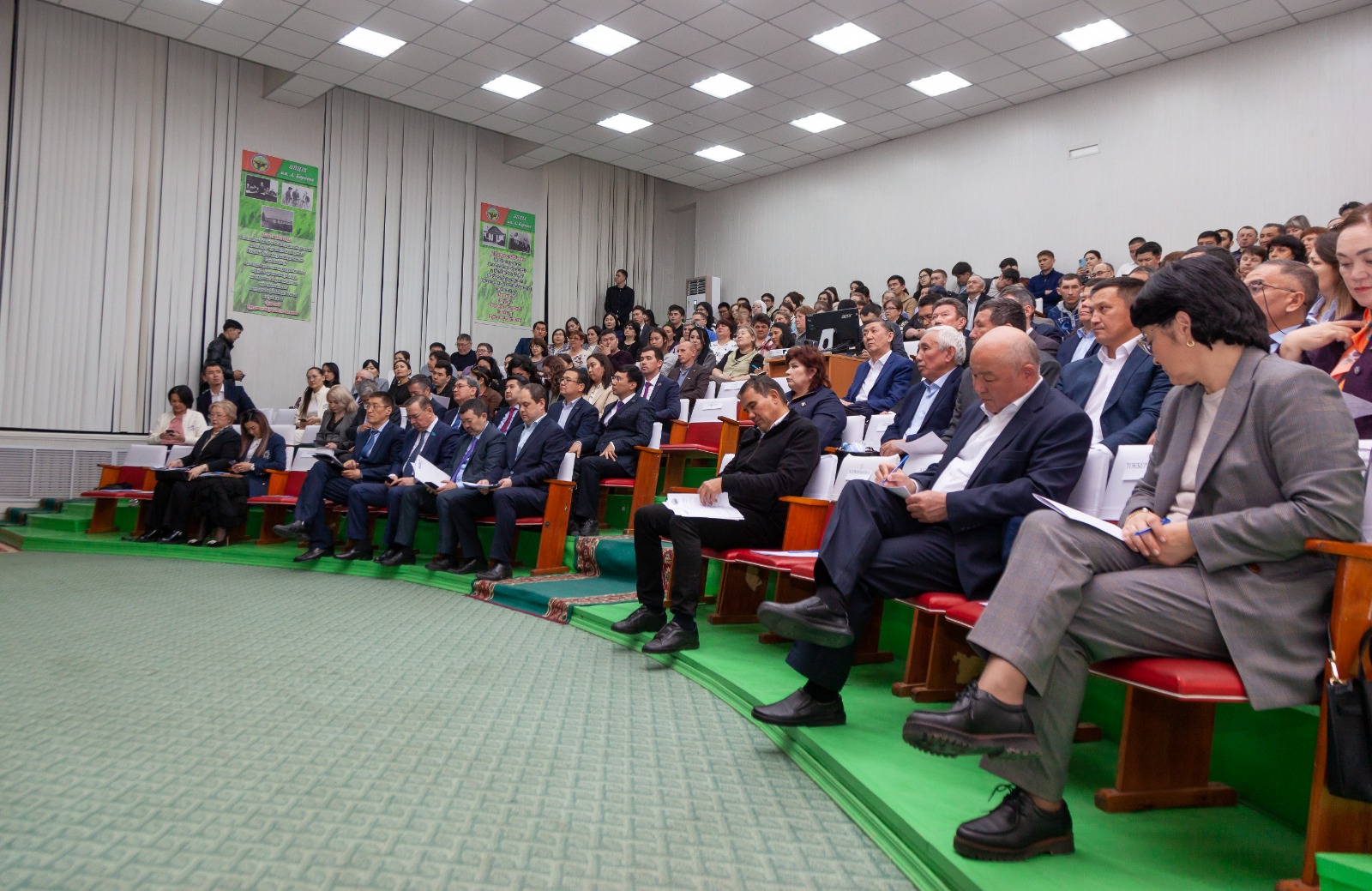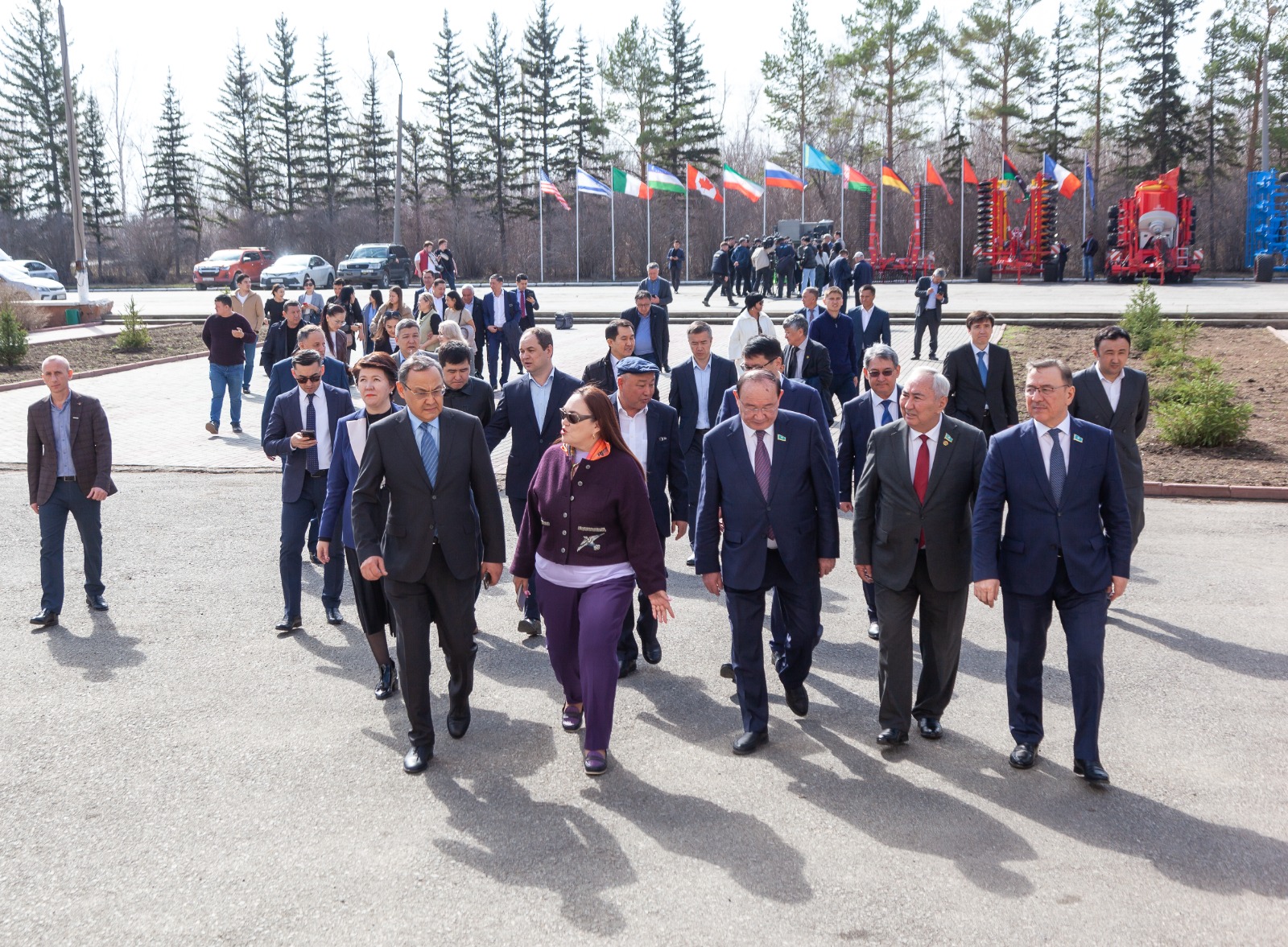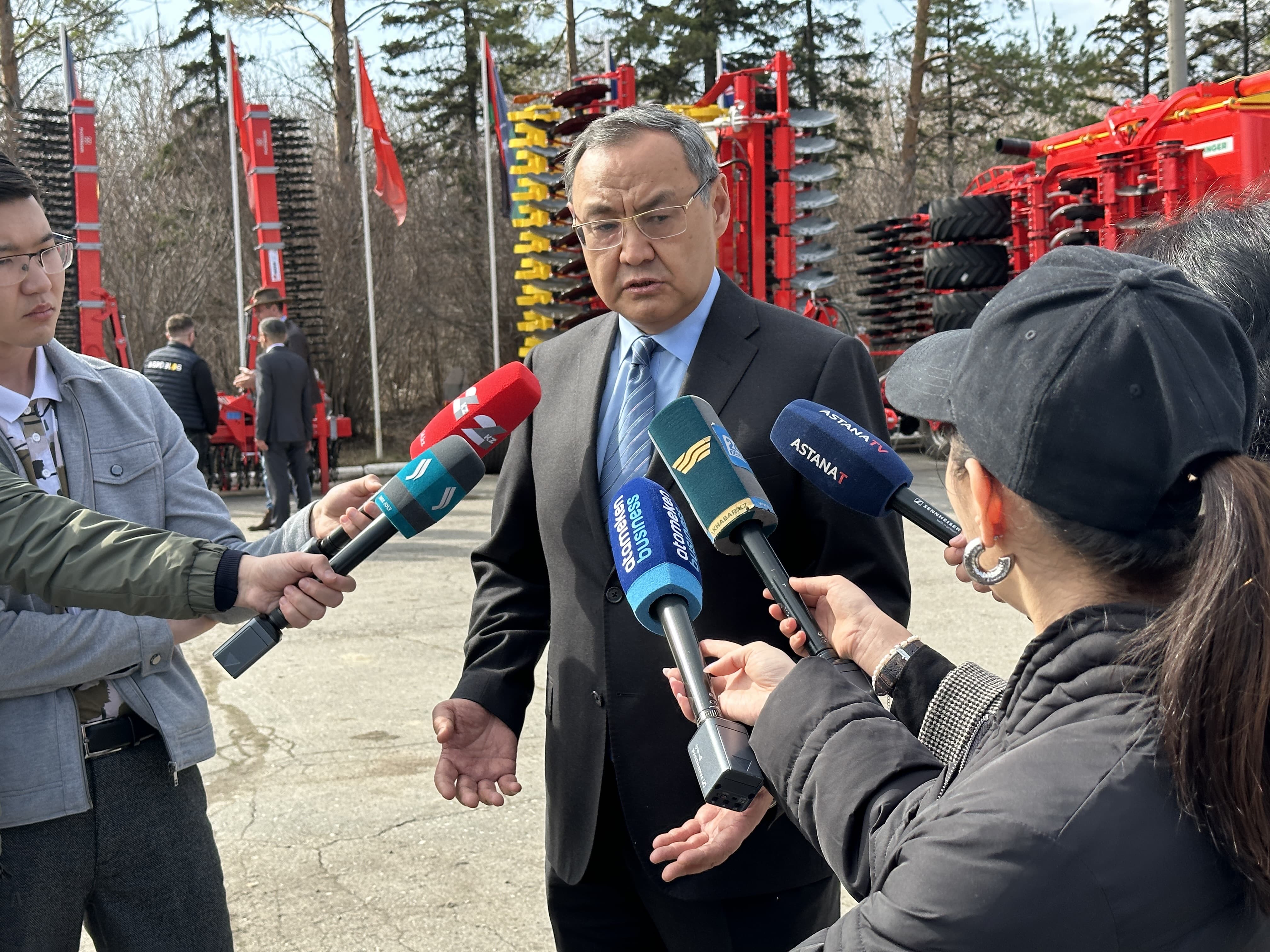In the village of Shortandy, Akmola region, on the basis of the Scientific and Production Center for Grain Farming named after A.I. Baraev, a visiting meeting of the Presidium of the National Academy of Sciences under the President of the Republic of Kazakhstan was held on the topic: “The role of agricultural science in adapting agriculture to natural disasters,” Liter.kz reports.
Opening the meeting of the presidium, the President of the National Academy of Sciences A. Kurishbaev noted that now we are all witnesses to how rapidly the climate is changing, how agriculture is suffering from its negative consequences, incurring colossal losses. In these conditions, the role of agricultural science increases many times over, which must promptly offer optimal solutions to not only existing but also future problems and thereby ensure the sustainable development of the industry.
It is along this path that science is developing today in all technologically developed countries, receiving full support from the state. But we have not yet fully realized this simple truth about the need for priority development of agricultural science in the context of global natural challenges. The reason for the lag of Kazakhstani science lies in the ineffectively built system of organizing agricultural research, the inability to get rid of old management stereotypes and it is necessary to change its work taking into account successful world practice, noted A.K. Kurishbaev.
Three major systemic problems can be identified that hinder the development of our agricultural science.
First – this is the elimination of systemic shortcomings in determining priorities and topics of scientific research and the transition to the implementation of large scientific and technical programs (megagrants), developed on the basis of an interdisciplinary approach, involving in their implementation the capabilities of a wide variety of areas of science, as well as leading foreign scientists. This will allow us to get away from the petty topics that have taken root in us, which has become one of the main reasons for the dissipation and ineffective use of budget funds allocated to agricultural science (in 2023, 139 disparate projects were implemented, of which 31 were under the PCF and 108 under the Global Fund).
As a result of the implementation of such large integrated projects, we will receive a multiplier effect. In addition to solving strategically important problems of the economy, their results will be transformed into new educational programs of universities, on their basis, the training of not only highly qualified specialists in various fields, but also modern scientific personnel will begin, and most importantly, stable employment of scientists will appear in agricultural research institutes, and accordingly, the development and research activities.
At the meeting, specific proposals were presented for megaprojects being developed by the academy on water resource management, development of genetic resources in agriculture, and drought-adaptive agricultural technologies.

Second – based on the experience of developed countries, this is the creation of an effective management system for scientific organizations by transforming the management company NANOC from an administrative superstructure into an analytical center, which, based on foresight research, will determine priorities and topics of scientific research, coordinate the activities of scientific organizations with an emphasis on strengthening service functionality, transfer of new knowledge and foreign technologies, commercialization of finished developments, dissemination of knowledge and training of scientific personnel.
In addition, it is proposed to transform the legal status of NJSC “NANOTS” into a state non-profit Fund, the services of which will be financed through government assignments, that is, from the budget.
The management company represented by NANOC has actually turned into an administrative superstructure, supported by dividends from subsidiaries. In general, bureaucracy and science administration have increased in agricultural research institutes and experimental farms. The share of scientific workers in them ranges from 9 to 45%, the rest are AUP and technical personnel. The question arises: who will do science then, if, as they say, there is one with a fry, seven with a spoon?

Third – using the capabilities of the research university model in training modern scientific personnel based on the experience of developed countries.
Speaking about the training of specialists for the industry, he focused on the need to create not only equal conditions, but also to provide certain preferences for applicants and students of agricultural professions. In particular, this concerns eliminating the existing disproportion in the amount of scholarships between agricultural, pedagogical and medical specialties, lowering the passing score threshold for applicants who have chosen agricultural professions, and strengthening state support measures for their employment in rural areas. He noted that specific proposals in this regard have been in the government and the Ministry of Education and Science for a long time. Now we need concrete decisions on them now, because the ever-increasing shortage of agricultural specialists in the near future may have serious negative consequences for the economy, as we see today in the field of water management.
– In 2023, the utilization of state educational grants in the agricultural and water sectors was only 59% (!). How will we develop agriculture and the water industry with this approach to personnel training? So, last year, only 101 people entered the specialty “Water Resources and Water Use” throughout the country, 70% of state grants remained unused. At the same time, to fully meet the needs of the economy over the next five years, we need to train 800 water specialists annually,” said A. Kurishbaev.

In conclusion Kurishbaev A.K. also emphasized:
I am confident that with proper funding and successful implementation of fundamental changes in the field of agricultural science, as mentioned above, we will be able to create a modern system of scientific support for the industry in Kazakhstan.
Otherwise, instead of taking science-based preventive measures at minimal cost, we will be doomed to always struggle with the negative consequences of increasing natural disasters, while incurring huge losses and multi-billion dollar costs to restore the damage caused.
The meeting was also attended by the Chairman of the Board of the National Academy of Sciences B. Kasenov, the international expert of FAO, the World Bank A. Morgunov, the Chief Scientific Secretary of the National Academy of Sciences I. Tokbergenov, deputies of Parliament, representatives of agribusiness, leading scientists of agricultural science.
Based on the results of the on-site meeting of the Presidium of the National Academy of Sciences, a decision was made to send a corresponding analytical note on the development of agricultural science and personnel training to the government of the Republic of Kazakhstan.
#Scientists #discussed #role #agricultural #science #adapting #agriculture #natural #disasters
2024-04-19 16:45:47







